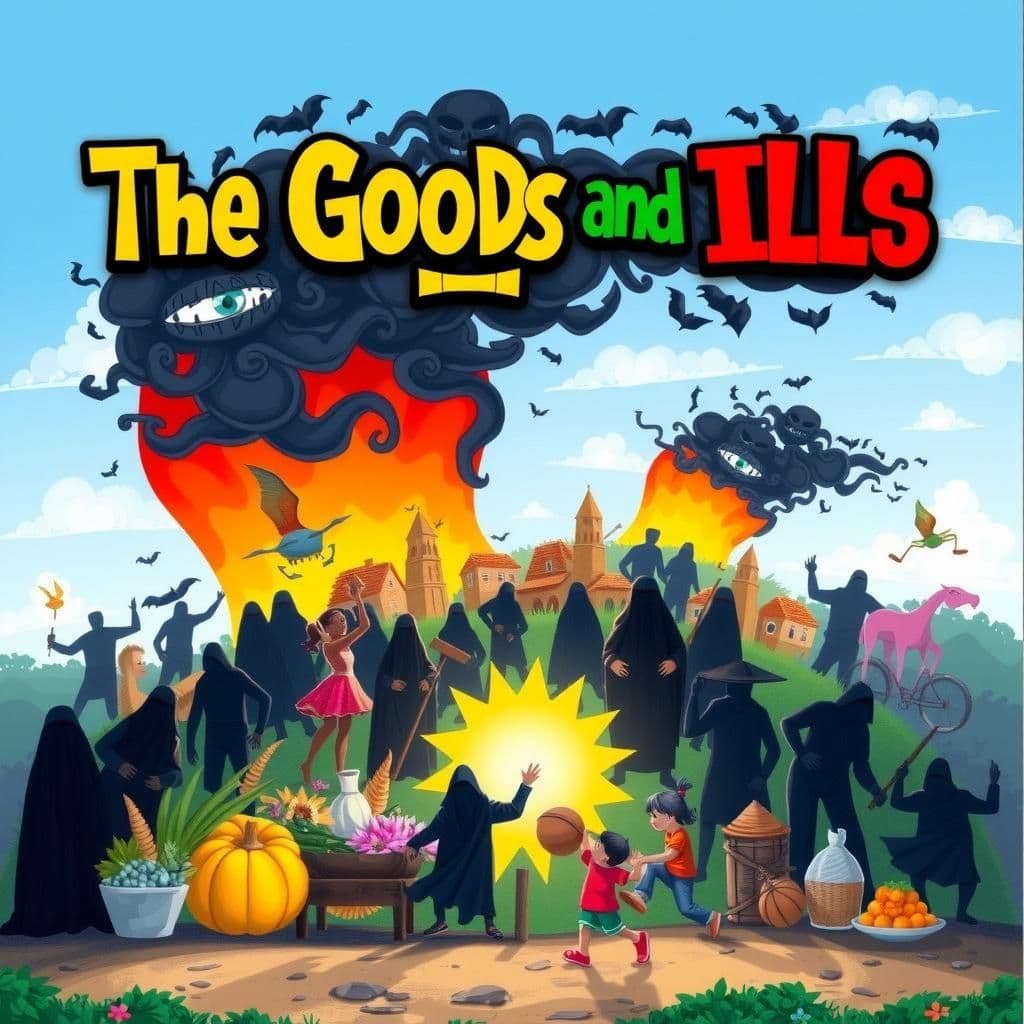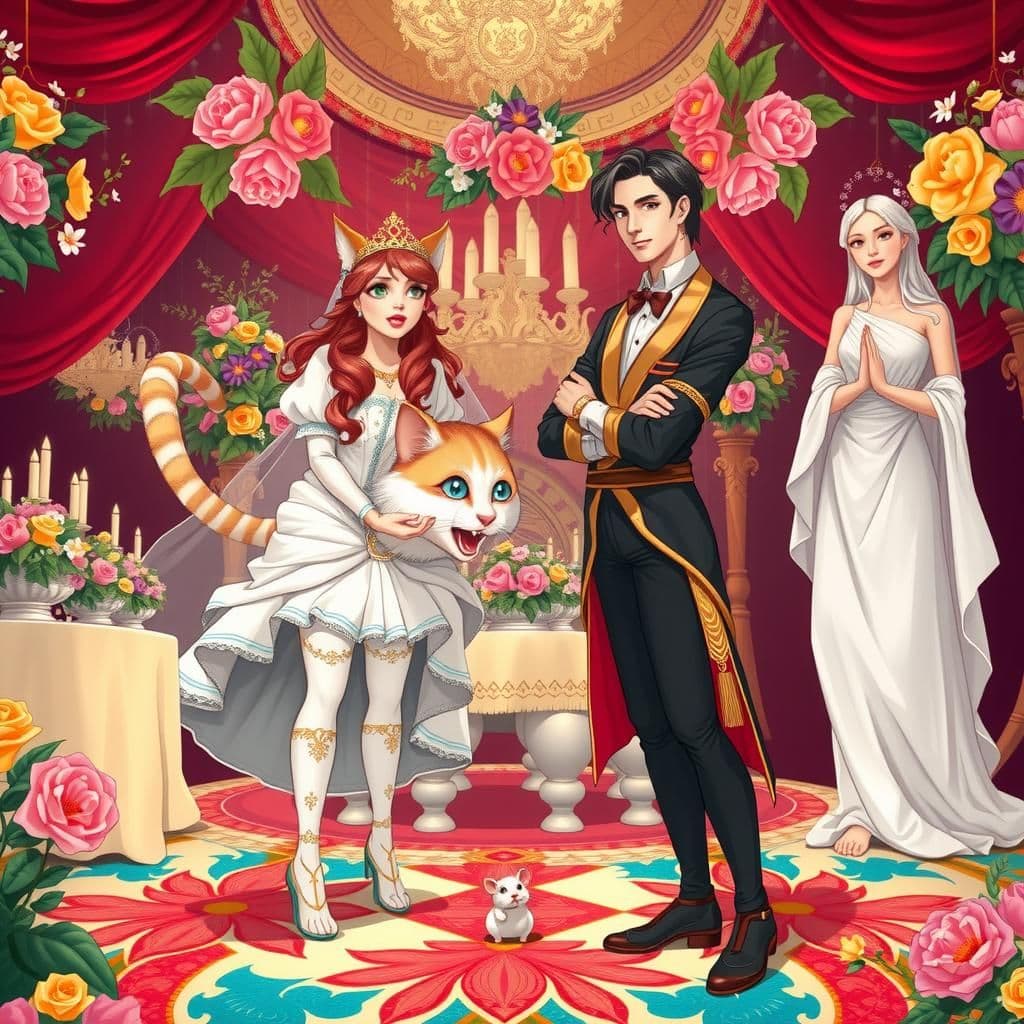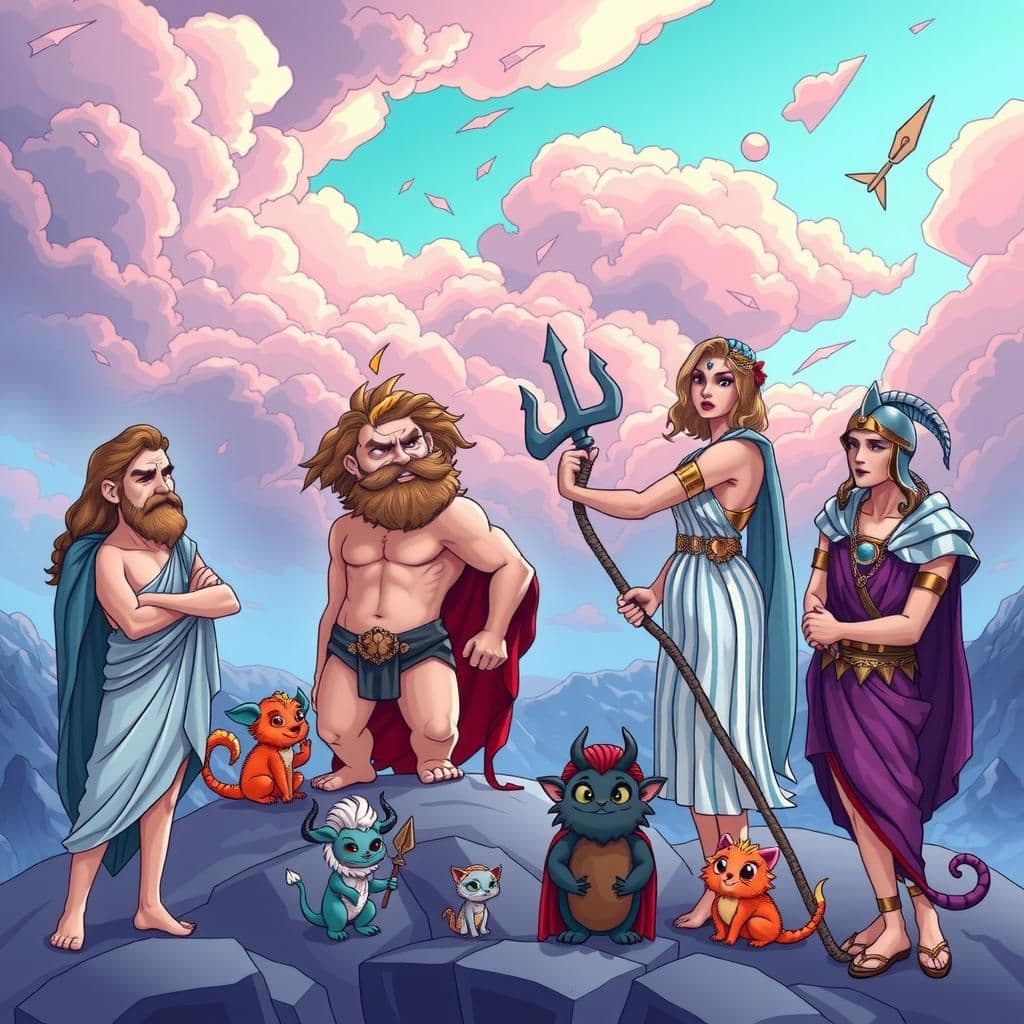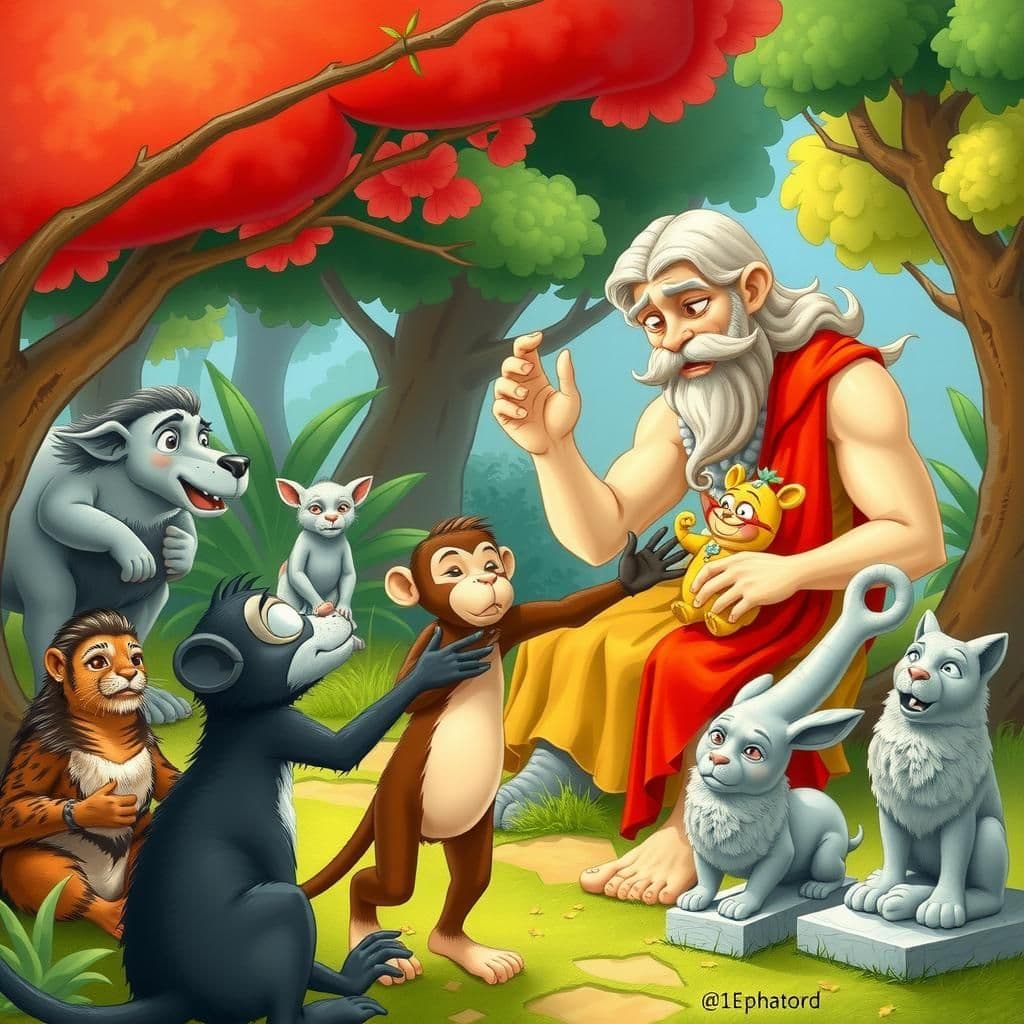The Goods and the Ills

Story Summary
In "The Goods and the Ills," a culturally significant moral story, the Goods are expelled from their rightful place in humanity by the Ills, who, due to their overwhelming numbers, dominate the earth. Seeking justice, the Goods appeal to Jupiter, who decrees that the Ills will arrive in groups while the Goods will come individually, resulting in a world where Ills are abundant and Goods are scarce, given only to those who can recognize their true value. This short story with moral lessons highlights the importance of discernment and the challenges of recognizing goodness amidst adversity.
Click to reveal the moral of the story
The moral of the story is that while hardships and evils often come in overwhelming numbers, goodness and virtues are bestowed individually and require discernment to be recognized and appreciated.
Historical Context
This passage reflects themes found in ancient mythological storytelling, particularly in works attributed to Greek philosophers and poets such as Hesiod and Aesop, who often personified abstract concepts like Good and Evil. The narrative illustrates the duality of human experience and the struggle between positive and negative forces, echoing the moral lessons prevalent in fables and allegories throughout history. The idea that virtues are rare and bestowed individually, while vices are common and collective, resonates with various cultural traditions that explore the balance of good and evil in human life.
Our Editors Opinion
This story reflects a modern understanding of how positive and negative experiences shape our lives, highlighting the idea that while challenges often come in overwhelming numbers, the good things in life are often rare and need to be recognized individually. For instance, in a workplace filled with stress and negativity, an employee may find themselves overwhelmed by criticism and setbacks, yet a single moment of encouragement from a colleague or a well-deserved compliment can uplift their spirit and provide the motivation needed to persevere.
You May Also Like

The Cat-Maiden
In "The Cat-Maiden," a culturally significant moral story, Jupiter and Venus debate the possibility of changing one's true nature. To prove his point, Jupiter transforms a Cat into a Maiden and marries her to a young man. However, during the wedding feast, when a mouse is released, the bride's instinctive leap to catch it reveals that her true nature remains unchanged, illustrating the moral that one's inherent traits cannot be altered.

Jupiter Neptune Minerva and Momus
In an ancient legend, Jupiter, Neptune, and Minerva each create significant entities—man, bull, and house—and dispute over whose creation is the most perfect. They appoint Momus as a judge, but his incessant faultfinding leads to humorous critiques of each creation, prompting Jupiter's indignation and Momus's expulsion from Olympus. This funny story offers an uplifting moral about the pitfalls of constant criticism, making it a delightful addition to bedtime moral stories and simple moral tales.

Jupiter and the Baby Show
In "Jupiter and the Baby Show," a clever Monkey enters her unattractive cub in a competition hosted by Jupiter, who initially mocks the cub's appearance. However, the Monkey turns the tables by highlighting the flaws in Jupiter's own offspring depicted in antique sculptures, prompting Jupiter to award her the first prize to avoid embarrassment. This impactful moral story emphasizes the value of humility and the importance of recognizing one's own imperfections, making it a noteworthy addition to short story collections with moral lessons.
Other names for this story
"Goods vs. Ills", "Battle of the Goods", "The Ills' Dominion", "Heavenly Justice", "The Struggle Within", "Jupiter's Decree", "Divine Balance", "The War of Goods and Ills"
Did You Know?
This story illustrates the theme of duality in human experience, suggesting that while negative aspects (the Ills) tend to cluster and overwhelm, positive attributes (the Goods) are rare, precious, and must be actively recognized and embraced by individuals.
Subscribe to Daily Stories
Get a new moral story in your inbox every day.